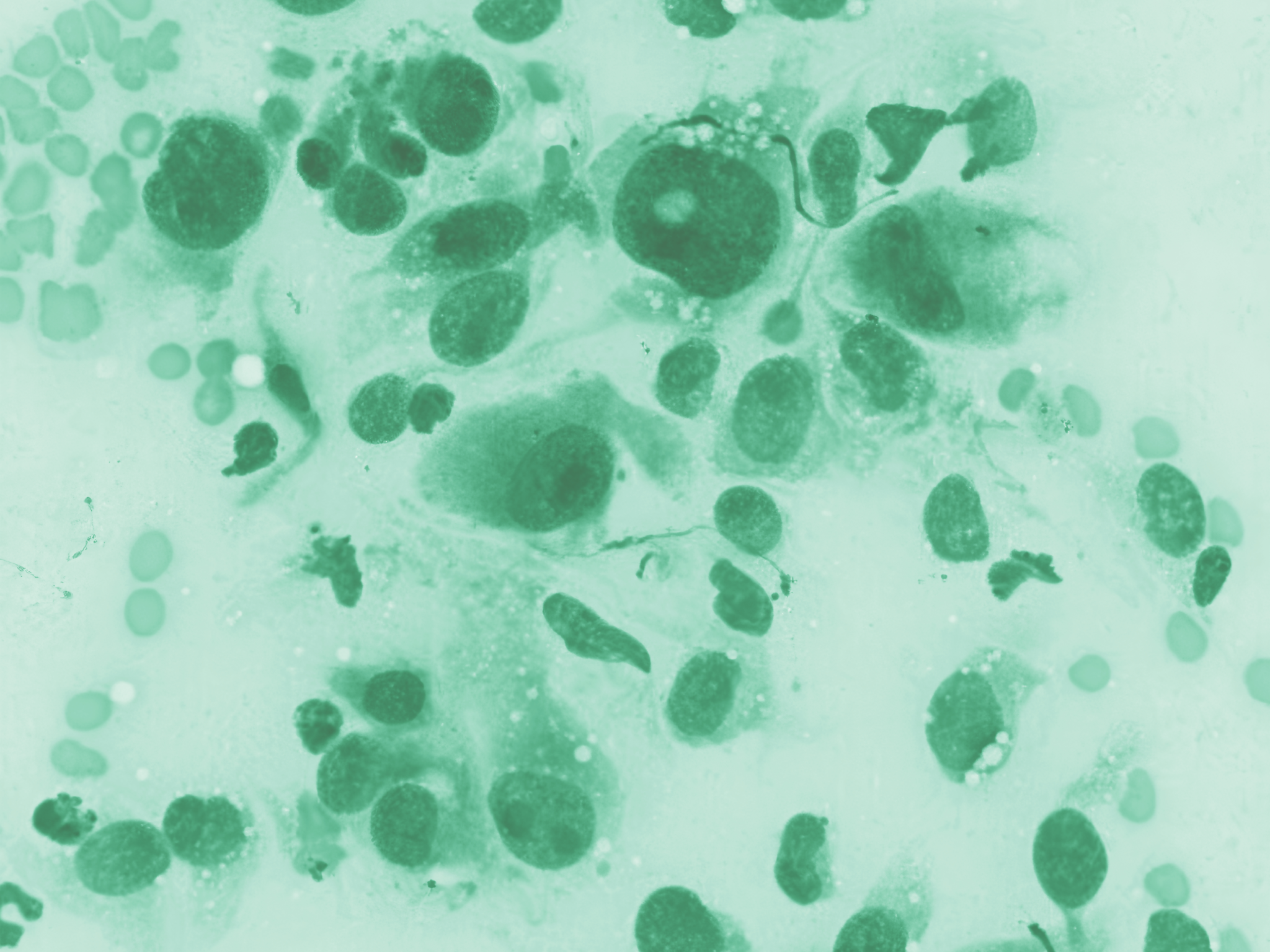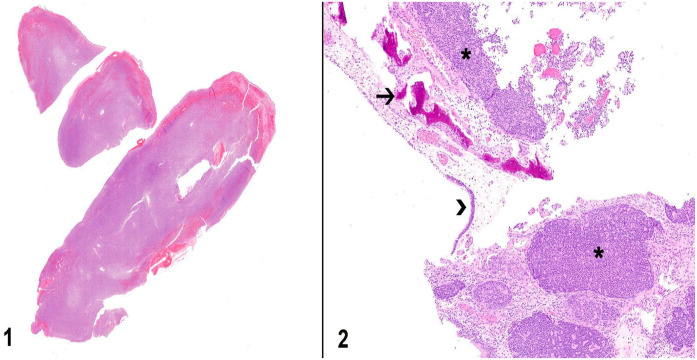Why Early Cancer Detection is Critical and Reliable: Affordable Diagnostic Solutions for Every Practice

Impactful Veterinary Cancer Diagnostics for Every Practice
Cancer is a leading cause of death in aging dogs and cats, and we understand the importance of early detection and intervention.
Early detection and intervention can reduce the severity of treatment side effects, support more effective disease management, and open the door for a wider range of therapeutic options than are typically available in advanced cases, oftentimes minimizing the need for invasive procedures.
The AAHA, Animal Cancer Foundation, and other organizations offer pet owner-friendly guidelines on the warning signs of cancer; but these very signs are not always obvious — even to clinicians.
Enter Pet Cancer Awareness Month: the perfect time to not only educate your clients about what to look for and stress the importance of regular health and wellness screenings but also expand awareness of available cancer screening tests and resources.
Read on to learn how our cancer diagnostics offer your practice—and your clients—impactful and affordable diagnosis options.
Identifying cancer in your canine patients
One in four dogs will develop cancer during their lifetime. While certain breeds are more predisposed to cancer, cancer is primarily a disease of aging. Cancer is the leading cause of death among dogs who are beyond middle age, with nearly 50% over the age of 10 dying from the disease. [Source: Veterinary Cancer Society]. This means that as our pets live longer due to advances in nutrition, preventive care, and veterinary medicine, their risk of developing cancer naturally increases.
Today, the most prevalent canine cancer is lymphoma, accounting for approximately 24% of all new canine cancer cases, but there are also other types of cancers clinicians should be looking for including hemangiosarcoma and transitional cell carcinoma of the urinary tract to name a few. [Sources: Veterinary Cancer Society, and ACVS]

Nu.Q® is the industry’s only in-house canine cancer screening test.
Run on Antech’s Element i+™ in-house analyzer and requiring only 50μL of EDTA plasma, Nu.Q® canine cancer screening test uses innovative technology to measure plasma nucleosome concentration and help determine the current likelihood of common canine cancers, with high (>70%) detection rates for lymphoma and hemangiosarcoma.
Nu.Q® is a screening tool that should be used for older dogs (≥7 years) and certain at-risk breeds (≥4 years). With Nu.Q®, you can refine your differential list and, in the case of positive results, develop a plan of action before your patient goes home, including further diagnostics.
Low price point and shelf-stable test kits make Nu.Q® the perfect in-house option for every practice — and every dog owner.
Learn more about Nu.Q on the Element i+
CADET™ BRAF provides early and accurate detection of the most common type of canine urinary tract cancer (known as transitional cell carcinoma or TCC). CADET™ BRAF evaluates canine urine samples for the presence of cells containing the b-raf mutation for TCC. CADET BRAF detects up to 85% of TCC cases. With negative results, (and sufficient sample), BRAF-Plus testing is performed at no extra cost delivering the most informative result from a single submission. And results are not impacted by the presence of red or white blood cells, protein, bacteria, or other potentially interfering substances that can normally impact urine testing.
CADET BRAF testing is ideal for dogs presenting with abnormal urinary signs such as persistent hematuria, stranguria, and recurrent or complicated urinary tract infections. CADET BRAF can also be used as confirmation of TCC diagnosis in cases where cytologic findings are suspicious, but not diagnostic, for malignancy.
This cutting-edge technology is accurate, affordable, and convenient for both veterinarian and pet owners.

What about cancer in feline patients? Screening for common viruses can help
One in five cats will develop cancer at some point in their lives. Although the exact causes of feline cancer are not always clear, several factors can increase a cat’s risk, including genetic predisposition, exposure to environmental toxins, and two of the most common feline viruses — FeLV (Feline Leukemia Virus) and FIV (Feline Immunodeficiency Virus).
Thankfully, there’s a rapid test for that. Antech’s trūRapid™ FIV/FeLV, is an easy-to-use, two-in-one in-house test for Feline Immunodeficiency Virus antibodies and Feline Leukemia Virus antigen.
trūRapid™ FIV/FeLV — reliable in-house infectious disease testing results in minutes. trūRapid FIV/FeLV shows exceptional ability at differentiating between FIV-vaccinated and FIV-infected cats, bringing convenient, accurate, and affordable feline viral testing to any veterinary practice.
Learn more about trūRapid™ FIV/FeLV
When cases merit a second opinion
Antech’s Pet Cancer Pathology Services team consists of board-certified anatomic pathologists who specialize in canine and feline cancer pathology — and they know the importance of second opinions. They are research collaborators, clinical instructors, lecturers, authors, and pet owners themselves with decades of experience analyzing tens of thousands of biopsies.
“All of our Pet Cancer Pathology Service pathologists share a passion and enthusiasm for oncologic pathology,” said Antech Anatomic Pathologist Fabiano Oliveira (DVM, MS, DACVP).
Every biopsy sent to the pet cancer pathology team receives automatic second and third opinions, as each case is evaluated by a team of three pathologists who collaborate to reach a diagnostic consensus delivered via a single report.
Likewise, every report includes detailed interpretations, margin evaluation, microscopic images, and direct phone access to our pathologists — because we believe collaborative diagnostics leads to better care.
“We stay up-to-date on advancements in oncology, such as newly described diseases and innovations in diagnostic testing, by regularly participating in internal rounds, running journal clubs, and discussing cases related to cancer in specific pets. We also stay at the forefront of the latest scientific advancements in veterinary oncology by attending and contributing to oncology conferences, clinical rounds, and educational seminars — helping to ensure that our diagnoses, and reports, are relevant,” said Dr. Oliveira.
Our pet cancer pathology service has proven to be a valuable tool not only for general practitioners, but also for medical and surgical oncologists as it provides a more-complete report with consistent terminology, always listing the features that are prognostically significant in cancer cases.
“Antech was one of the first — if not the first — diagnostic laboratory to fully convert to digital pathology, allowing us to quickly consult with other pathologists when we’re presented with more challenging cases,” said Dr. Oliveira. “A pathologist’s interpretation of tissue changes is still the bedrock of diagnostic pathology—but the implementation of AI-assisted mitotic counts to our system has improved our efficiency and accuracy, bringing more certainty to the pathologist providing an even better assessment of tumor grades.”
Learn more about Antech™ Pathology Services and the Pet Cancer Pathology Services team
If you have any questions about our cancer diagnostics or pathology services—or any other diagnostic questions on your mind—we’re here for you.
Reach out to your Antech sales representative or order the test codes (Order code: FBXNEO (US) or CFBXNEO (CA)).
1 Beatty J. Viral causes of feline lymphoma: retroviruses and beyond. Vet J. 2014 Aug;201(2):174-80. doi: 10.1016/j.tvjl.2014.05.026. Epub 2014 May 22. PMID: 24928422.
Nu.Q® is a registered trademark of VolitionRx Limited and s supplied under license by VolitionRx Limited and its subsidaries.
©2025 Antech Diagnostics, Inc. All rights reserved. Antech and the Antech logo are the trademarks of Antech Diagnostics, Inc. or its affiliates.




